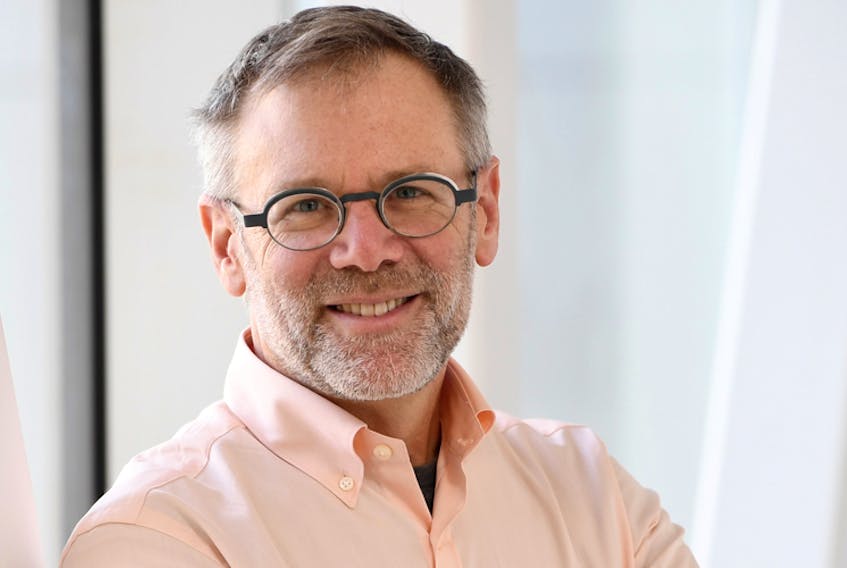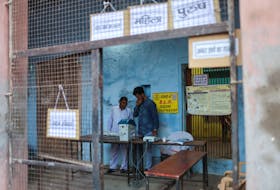If you missed it this week, Dr. Michael Ungar, Canada Research Chairman in Child, Family and Community Resilience, launched his new book Change Your World.
Ungar has been studying this topic for a long time and could be said has a unique take on resilience. It is his contention, and research, that suggests the environment is by the far the largest driver of whether you will be resilient or not.
The top of his book has the provocative statement of finally a book that explains why self-help doesn’t work. During his talk in Halifax on June 13, he discussed how he has seen, and heard, many speakers discuss how it is “just up to you to show more GRIT, be more resilient, believe in yourself a little more and it will all come together.” Individual responsibility is what is pushed mostly in North America; that everything is up to you. It is all up to your perseverance, tenacity, effort, strength and determination if you will be successful. Is it really the case?
If we look at a popular sports storyline from the last month you can see this concept in action. The Toronto Raptors won their first basketball championship and much of the talk was around the management of their best player, Kawhi Leonard. They kept mentioning his load management. It was the go-to talking point from the announcers during breaks and when other players got injured. As a sport scientist who works in the trenches, we work on this concept of load management daily. Load management is monitoring the volume, and intensity, of work an athlete does physically. We work with the coach and athlete to predict what is right for that athlete. Too much too fast can put an athlete at risk of injury. The Australian Institute of Sport has shown this with 10 years of data that the highest correlate to injury is big jumps in training volume and or intensity and not keeping it progressive.
In recent years, we have also added the psychological load on the athlete which has made the numbers more powerful. For example, an athlete can train perfectly all day, with the right load, go home and find out their parent has been diagnosed with cancer. This can keep them up all night and derail what they were supposed to do that night for recovery. You cannot separate the two; if it was only that simple.
If we put these two together, Ungar’s work, and Kawhi’s story, something important is missed or at least overshadowed with all the media and commenters’ comments and articles with regards to Kawhi’s story. Kawhi could have went anywhere in the league when he chose to leave San Antonio. Of course, he wanted to go to a place that is committed to winning but from all accounts he went to a place where there was also an environment to support his recovery plan and respected his individual needs. Although there was lots of important skills and knowledge used to monitor the load, the key part was there was an environment that supported it. Without the environment the other does not happen.
There is certainly a whole other conversation on choice. Does a child in a war-torn country have a choice to get to an environment that will foster his resilience? Look at what is happening with immigration south of the border. People are moving to an environment that allows them to be resilient and healthy. Allows them some of the 12 factors to be resilient Ungar talks about.
Looking at one factor to stay resilient which Ungar talks about allows us to understand this more clearly. Having structure increases a person sustaining high resilience. My research has shown the same. It is a factor I assess when I teach courses on resilience. It is easy for me to say have structure and relatively easy to teach the skill but what if you are in an environment that does not allow it? Does it matter that you want it and are ready for it if you can’t have it?
Similar circumstances are happening in workplaces everyday. Currently, Vendura wellness is working on a workplace complete health survey for a large organization. Eighty per cent of the survey will most likely be about the environment. The organization realizes the environment drives the behaviour of their people. Most of the feedback will be tailored to how can the organization change to support the health of the people working at the company? This is how they will improve the health of their people and productivity.
I doubt I would ever work for someone else again, although if I did, the interview would include me asking questions as well. I would be looking for a company that would provide be the environment to be healthy as Kawhi did, which ultimately will be better for them as well.
Our company is also working on a purpose statement for an organization and I feel it will land somewhere with we create an environment for you to successful. My brother eloquently said 10 years ago, “I cannot make you happy, but I can create the conditions for you to be.” That was powerful to me.
My guess with Kawhi is he will make a choice next year not only on the opportunity to win but an environment that will support him being successful by supporting him being resilient.
I did a TedTalk on the matter last month if you want to check it out. It was Stuff I learned from my dog about resilience . It would be great to get your feedback. You can hit me up at @Vendurawellness on twitter.
Stay resilient until next time.









